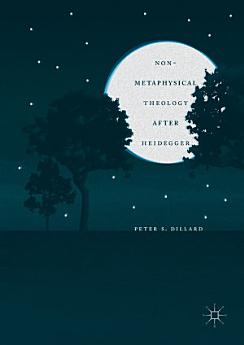Non-Metaphysical Theology After Heidegger
Jun 2016 · Springer
E-Book
185
Seiten
reportBewertungen und Rezensionen werden nicht geprüft Weitere Informationen
Über dieses E-Book
Using Martin Heidegger’s later philosophy as his springboard, Peter S. Dillard provides a radical reorientation of contemporary Christian theology. From Heidegger’s initially obscure texts concerning the holy, the gods, and the last god, Dillard extracts two possible non-metaphysical theologies: a theology of Streit and a theology of Gelassenheit. Both theologies promise to avoid metaphysical antinomies that traditionally hinder theology. After describing the strengths and weaknesses of each non-metaphysical theology, Dillard develops a Gelassenheit theology that ascribes a definite phenomenology to the human encounter with divinity. This Gelassenheit theology also explains how this divinity can guide human action in concrete situations, remain deeply consonant with Christian beliefs in the Incarnation and the Trinity, and shed light on the Eucharist and Religious Vocations. Seminal ideas from Rudolf Otto and Ludwig Wittgenstein are applied at key points. Dillard concludes by encouraging others to develop an opposing Streit theology within the non-metaphysical, Heidegerrian framework he presents.
Autoren-Profil
Peter S. Dillard is the author of Heidegger and Philosophical Atheology: A Neo-Scholastic Critique (2008), A Way into Scholasticism: A Companion to St. Bonaventure’s The Soul’s Journey into God (2011), Foundation and Restoration in Hugh of St. Victor’s De Sacramentis (2014), and numerous scholarly articles.
Dieses E-Book bewerten
Deine Meinung ist gefragt!
Informationen zum Lesen
Smartphones und Tablets
Nachdem du die Google Play Bücher App für Android und iPad/iPhone installiert hast, wird diese automatisch mit deinem Konto synchronisiert, sodass du auch unterwegs online und offline lesen kannst.
Laptops und Computer
Im Webbrowser auf deinem Computer kannst du dir Hörbucher anhören, die du bei Google Play gekauft hast.
E-Reader und andere Geräte
Wenn du Bücher auf E-Ink-Geräten lesen möchtest, beispielsweise auf einem Kobo eReader, lade eine Datei herunter und übertrage sie auf dein Gerät. Eine ausführliche Anleitung zum Übertragen der Dateien auf unterstützte E-Reader findest du in der Hilfe.








